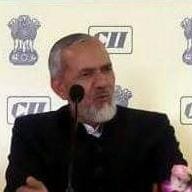Staff Reporter / New Delhi

United Muslim of India (UMI) has welcomed the Supreme Court’s decision rejecting the PIL for changing the names of cities and important buildings in the country.
UMI General Secretary Dr. Syed Ahmed Khan in a statement said that the decision of the Supreme Court on February 27 on the PIL to change the names of historical, cultural and religious places is of utmost importance.
With this decision, anti-social and mischievous elements were reprimanded and and this should be welcomed by all the peace-loving citizens of the country.
Dr. Syed Ahmed Khan further said that this historic decision of the Supreme Court will strengthen the atmosphere of peace and brotherhood in the country.
Dr Khan called upon the central and provincial governments to respect the sentiments of every citizen of the country based on this historic decision of the Supreme Court and to refrain from doing unnecessary things like changing names in the future.
The Supreme Court on Monday February 27rejected a public interest litigation (PIL) case brought by BJP leader and counsel Ashwini Kumar Upadhyay seeking the renaming of historical places and cities which he said are currently named after ‘invaders’.

A bench of Justices KM Joseph and BV Nagarathna slammed the petitioner for what it saw as a petition that violated the Constitution’s secular foundations.
The Court stated that the petitioner is selectively reexamining the past and takes issue with labelling an entire culture as ‘barbaric’.
The bench pointed out that Hinduism is a great religion that does not allow bigotry.
Justice Nagarathna stated the country is dealing with a slew of other issues that must be addressed first.
She also emphasised the British divide-and-rule tactic, which was used to keep Indians fighting amongst themselves.
The Court further stated that the Supreme Court has previously established that India is a secular republic and that a nation cannot remain a prisoner of its past.
Upadhyay’s petition, filed through counsel Ashwani Kumar Dubey, asked the Home Ministry to constitute a ‘Renaming Commission’ to determine the historical names of sites renamed by ‘barbaric foreign invaders’ in order to protect sovereignty and secure other fundamental rights.
It further requested that the Central and State governments be directed to update their websites and records, which number in the thousands.
Instead, it was sought that the Archaeological Survey of India is directed to compile a list of such names in accordance with Article 19 of the Constitution’s right to know.
The Court, on the other hand, made it clear today that, while India has been conquered numerous times, it cannot be erased from history by renaming sites.
